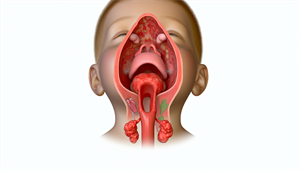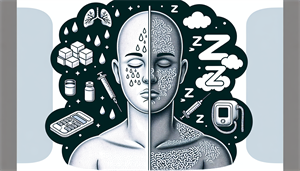When your toddler snores, it’s often nothing to worry about - but sometimes, it signals something more. Persistent and loud snoring, especially when paired with breathing difficulties, is a red flag that shouldn’t be ignored. In this article, we’ll explore toddler snoring when to worry, what it may indicate about your child’s health, and the steps you should take to ensure their well-being. Stay tuned for expert advice and practical tips to discern when snoring suggests it’s time to consult a pediatrician.
Key Takeaways
-
Light and occasional snoring in toddlers is common and typically not concerning, but persistent, loud snoring with gasping or labored breathing may indicate a more serious condition like obstructive sleep apnea, affecting 7-10% of children.
-
Causes of snoring in toddlers can range from anatomical factors such as enlarged tonsils and adenoids, to respiratory infections and allergies that lead to nasal obstruction and inflammation, potentially causing disordered breathing.
-
If a toddler consistently snores loudly and shows signs such as snorting, choking during sleep, mouth breathing, or night sweats, it is critical to consult a pediatrician to assess for sleep apnea, which can have significant implications for a child’s development and health if left untreated.
Understanding Toddler Snoring: Normal vs. Problematic

Toddlerhood is a time of exploration, discovery, and yes, plenty of sleep. But, not all sleep is created equal. When a child snores, it can be a sign of disrupted sleep. Occasional light snoring is common in many children and usually nothing to worry about. It often resolves on its own and doesn’t interfere with the child’s sleep quality.
However, a more serious sleep disorder may be indicated if your child’s snoring is loud, persistent, and accompanied by gasping or labored breathing. This could indicate poor child’s sleep quality due to sleep-disordered breathing such as obstructive sleep apnea, which affects 7-10% of children and can impact brain development, learning, and attention. It is essential to be aware of snoring in children as a potential sign of sleep disorders.
Typical Toddler Snoring Patterns
In most cases, a child’s snoring, or “child snore,” is light and intermittent throughout the night when a child sleeps. It’s influenced by their sleep stage and position, with the supine position making a toddler more prone to snoring, particularly those with obstructive sleep apnea. However, it is important to note that not only individual children snore, but also children as a group may experience this issue, which is why the term “children snore” is often used.
Temporary snoring can also be caused by congestion due to common viral infections such as:
-
RSV
-
adenovirus
-
rhinovirus
-
influenza
These viruses can cause inflammation in the nasal passages, leading to temporary breathing difficulties that may manifest as snoring.
Identifying Problematic Snoring
Conversely, severe snoring, which is problematic, presents a completely different scenario. This type of snoring is loud enough to hear down a hallway and can include disturbing signs such as gasping, labored breathing, and apnea pauses.
If a child struggles to breathe while they snore, snorts or gasps during sleep, or shows signs of ‘sucking in’ their chest, these could be signs of sleep apnea. Mouth breathing during the night may also be a sign of blocked nasal passages, often caused by enlarged adenoids or other nasal tissues.
Causes of Snoring in Toddlers

But what causes toddlers to snore in the first place? There are a few key culprits. Anatomical factors, such as the enlargement of tonsils and adenoids or deviation of the septum, can obstruct the airway, leading to disordered breathing and snoring.
Additionally, respiratory infections can lead to swelling of the tonsils and adenoids, further obstructing the airway. This can not only cause snoring but also be linked to obstructive sleep apnea.
Allergies, too, can cause inflammation in the nasal passages and throat, leading to breathing difficulties and an increased likelihood of snoring.
Anatomical Factors
Anatomical factors play a significant role in contributing to primary snoring in toddlers. Enlarged tonsils and adenoids can obstruct the airway, leading to sleep-disordered breathing.
Facial or jaw abnormalities such as narrow facial bone structures, small jaws, or overbites can impact a child’s air intake and contribute to snoring. Other congenital problems that may affect the nervous system or the structure of the face are also factors that can increase the risk of snoring in toddlers.
Respiratory Infections and Allergies
Respiratory infections, such as swollen tonsils and adenoids or nasal blockage related to chronic allergies, can cause snoring in toddlers. In addition to snoring, symptoms that may indicate a respiratory infection include:
-
Waking up tired
-
Daytime sleepiness
-
Mouth breathing
-
Behavioral changes such as hyperactivity or aggression
These symptoms are often accompanied by large tonsils and adenoids, particularly following upper respiratory infections.
Nasal congestion and inflammation caused by allergies or colds can also result in breathing obstructions for toddlers, leading them to breathe through their mouths and subsequently snore.
Daytime Indicators of Sleep Issues
Sleep issues aren’t only evident at night. During the day, toddlers with sleep disorders may exhibit excessive sleepiness, a sign commonly linked to conditions that disrupt nighttime sleep. They may also have difficulty waking up, beyond the usual night awakenings, indicating a sleep issue like behavioral insomnia.
Sleep issues, such as restless sleep, can also manifest in poor school performance, as they can impair cognitive abilities essential for learning, leading to difficulties with academic tasks. If bedwetting continues beyond age 5, especially past age 7, it might indicate an underlying sleep disorder.
When to Consult a Pediatrician
Recognizing the right time to seek medical advice is essential. If your toddler consistently snores loudly, it’s time to consult a pediatrician. This could indicate the presence of sleep apnea, which requires medical assessment.
Specific signs of sleep apnea in toddlers include:
-
Snorting, coughing or choking during sleep
-
Mouth breathing
-
Nighttime sweating
-
Bed-wetting
-
Sleep terrors
-
Abnormal breathing such as loud snoring
If such signs are observed, parents should seek guidance from a pediatrician. Delaying consultation can have serious consequences, including prolonged morbidity, delays in treatment, and the potential indication of serious health risks like diabetes, high blood pressure, heart disease, and impaired growth.
Diagnosing and Treating Toddler Sleep Apnea

A two-step process is involved in diagnosing and treating sleep apnea in toddlers. A sleep specialist diagnoses the condition through a sleep study called a polysomnogram (PSG).
This study measures the total number of apneas and hypopneas per hour of sleep, evaluating the severity of the condition and determining the appropriate level of treatment.
Sleep Study (Polysomnogram)
A polysomnogram measures a toddler’s:
-
Brain waves
-
Heart beat
-
Breathing
-
Eye and leg movements
-
Muscle tension during sleep
To ensure accuracy, the sleep study is scheduled to begin within 30 minutes of the child’s regular bedtime. Various equipment is used, including a bandage-like sensor to measure oxygen levels.
It is also possible to conduct a polysomnogram study for toddlers at home, which usually takes place overnight and helps identify factors that interrupts sleep.
Treatment Options
Treatment options are considered once the diagnosis of sleep apnea is confirmed. The most common surgical procedure to address snoring in toddlers with sleep apnea is adenotonsillectomy, which involves the removal of the tonsils and adenoids to open the upper airways.
In cases where sleep apnea persists after an adenotonsillectomy, positive airway pressure devices are advised. These devices function by delivering a constant flow of air through a mask to maintain open airways. If sleep apnea persists after surgery, a second sleep study may be recommended a few months later to assess the next course of treatment.
Preventive Measures and Home Remedies
In managing a toddler’s snoring, preventive measures and home remedies can be beneficial. Here are some ways to optimize the bedroom environment to help prevent snoring:
-
Ensure that the temperature is set between 65–70˚F (18–21˚C)
-
Keep ambient lighting dim during bedtime
-
Reduce external noise using white noise machines or earplugs
-
Insulate the room from external disturbances
Managing allergies that cause snoring can be done using over-the-counter medications. Maintaining an optimal sleep schedule and lifestyle changes such as ensuring a balanced diet and getting enough exercise can also help toddlers maintain a healthy weight and avoid snoring.
The Impact of Untreated Sleep Apnea on Toddler Development
Addressing sleep apnea is crucial as ignoring it can severely impact a toddler’s development. It can result in:
-
tiredness
-
irritability
-
attention, learning, and behavioral problems, similar to symptoms associated with ADHD
-
neuropsychological issues
-
executive dysfunction
-
potential damage to brain cells responsible for cognitive functions and mood
Untreated sleep apnea can also lead to poorer academic performance, hyperactivity, disruptive behaviors, and difficulties with social competence. If left untreated, sleep apnea can lead to a condition called ‘failure to thrive,’ causing a variety of health problems due to poor sleep quality, which can affect the child’s physical growth, weight gain, and overall developmental progress.
Summary
In summary, while it’s common for toddlers to snore occasionally, persistent loud snoring is not normal and could indicate a serious sleep disorder, such as sleep apnea. Recognizing the signs, understanding the causes, and seeking timely medical consultation can help ensure prompt diagnosis and treatment. Let’s ensure our children get the quality sleep they need for healthy growth and development.
Frequently Asked Questions
Should I be worried if my toddler snores?
Yes, you should be concerned if your toddler snores, as it could be a sign of a medical condition that needs attention from a pediatrician or ENT specialist.
How can I help my 2 year old snore?
To help your 2-year-old stop snoring, try rolling them onto their side to sleep, using a humidifier in their bedroom, removing potential allergens, and using a nasal wash with saline water to clear their nasal passages. This can help your child breathe easier and reduce snoring.
When should snoring be a concern?
If your snoring is loud, chronic, and disrupts your sleep, it may indicate a more serious issue like sleep apnea. Look out for additional symptoms such as daytime fatigue, irritability, headaches, or gasping for air during sleep, and consider seeking medical evaluation.
Why does my toddler snore at night when congested?
When toddlers are congested, their snoring at night is often caused by blocked nasal passages or airways, which can be a result of a cold, sinus infection, or a deviated/crooked septum. This can lead to snoring when the child sleeps.
Is it normal for my toddler to snore?
Yes, occasional light snoring is normal for toddlers. However, persistent loud snoring may indicate a potential sleep disorder and should be checked by a pediatrician.


